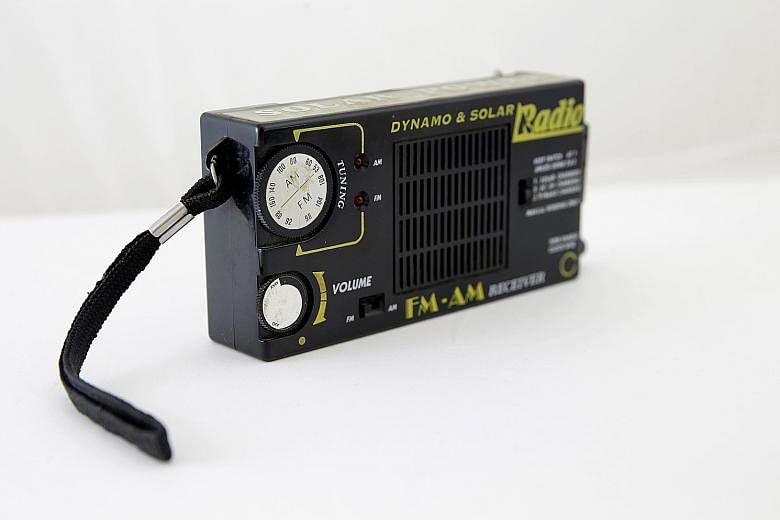SEOUL • In an era of sophisticated spycraft, North Korea appears to be returning to the days of short-wave radio.
The North broadcast a series of seemingly random numbers on Pyongyang Radio twice recently, an eerie reminder of the days when the North encrypted messages to its spies in South Korea.
In the latest episode last Friday, an announcer read what she described as "a mathematics review assignment for investigative agent No. 27" engaged in a "distance learning" programme.
"Turn to Page 459, No. 35; Page 913, No. 55; Page 135, No. 86," she said, continuing to cite numbers for the rest of the 12-minute broadcast.
Decades ago, it was not unusual for late-night radio listeners in the South to hear mysterious numbers arriving on static-filled signals from the North. The South Korean government in Seoul tried to block the signals and barred its citizens from listening.
Mr Kim Dong Sik, a former intelligence officer for North Korea, said he used to listen for such broadcasts at midnight each night to check whether his spymasters had a message for him. He was caught by the South in 1995 after a gun battle with South Korean agents and police officers.
-
Late-night orders
-
The 12-minute broadcast began in the early hours of last Friday, reported Yonhap news agency.
At 12.45am, the voice of a female announcer came over Radio Pyongyang: "Starting now, I will give review work to No. 27 exploration agents."
She continued: "Page 459, No. 35; Page 913, No. 55; Page 135, No. 86, Page 257, No. 2..." More numbers follow for the rest of the message's duration.
The encrypted number system, a relic of the Cold War espionage age, requires the sender and receiver to have access to the same book or other types of reference materials. The message is deciphered by referring to the position of a word on a page. North Korea used this method to contact spies who had infiltrated the South, said Yonhap.
A similar two-minute broadcast took place on June 24, the Associated Press reported.
"When I arrived in the South, I had five different call signs assigned to me," said Mr Kim, who now works as a senior analyst at the Institute for National Security Strategy, a think-tank run by South Korea's National Intelligence Service. "Each night, I listened for my call signs."
The June 24 and July 15 broadcasts, confirmed by the South Korean government on Wednesday, were the first such coded messages in 16 years, leaving intelligence officials and analysts puzzled by the North's motives.
The broadcasts come amid concerns about the behaviour of the North, which has raised tension with the US and its allies by conducting a series of missile tests. It has also issued bold claims of advances in its quest for a nuclear-tipped long- range missile, even though Washington's attention has been focused elsewhere.
North Korea has reacted strongly to a plan by the US to deploy an advanced missile defence system in the South. This week, it fired three ballistic missiles, saying that they were used in simulated tests to detonate nuclear warheads over seaports and airfields in the South, where US reinforcements are supposed to arrive in the event of a war.
The tests defied a new round of sanctions that the UN Security Council imposed against the North after a nuclear test in January and a long-range rocket launch in February.
Mr Jeong Joon Hee, a government spokesman for South Korea, has called the resumption of the broadcasts "seriously regrettable" but declined to comment on possible motives. "The North should abandon its old ways," he said.
Some analysts said the North's use of a bygone encryption tool was rekindling old fear among South Koreans of an escalation in psychological warfare on the peninsula.
Mr Kim said the broadcasts should be taken seriously. He said the North appeared to be bolstering its espionage operations since 2009, when it created the General Bureau of Reconnaissance by merging various party and military agencies in charge of sending spies to the South.
Washington has blacklisted the bureau after North Korean hackers were accused of wreaking havoc on the computer network of Sony's movie studio in 2014.
NEW YORK TIMES


